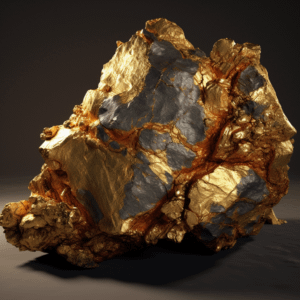Commodities fraud is a complex legal area that can involve market regulations, financial institutional policy, and federal, state, and even international law. Commodities fraud can cross borders, often affecting foreign exchange and international markets. The commodity market is regulated by the Market Integrity and Major Frauds Unit (MIMF) of the Department of Justice, as well as the Commodity Futures Trading Commission (CFTC).
If you have information about insider trading, commodities fraud, or other forms of market manipulation, you may be eligible to become a whistleblower. Whistleblowers’ anonymity is protected by law, and whistleblowers are protected by federal and state regulations against retaliation by their employers. Whistleblowers may also be eligible to receive significant financial rewards in the event that their valuable information leads to the successful recovery of defrauded funds.
If you are thinking of blowing the whistle on commodities fraud, do not wait. The law team of Tycko & Zavareei LLP has extensive experience in securities and commodities fraud, banking fraud, and all other areas of qui tam law. Our expert commodities fraud attorneys can help ensure that your rights as a whistleblower are protected, while ensuring the best possible chances of receiving a financial award.
Commodities Fraud Definition

Commodity trading can be lucrative, but it can also be rife with fraud. Securities and commodities fraud may look similar, with scam artists promising unnaturally high returns, offering unique investment opportunities that instead drain investors dry, manipulating financial markets, or otherwise taking advantage of financial systems for their own gain.
Common Types of Commodities Fraud
All investors want to get ahead, but engaging in commodities fraud to do so is illegal. Commodities fraud cases commonly involve:
- Front running: Front running, also known as tailgating, is a kind of insider trading. In a front-running scheme, an investor or trader makes financial decisions based on confidential information that should not have been disclosed to them or which is not available to the public. Front running may also involve manipulation of stock.
- Pump and dump schemes: Pump and dump schemes are common in both crypto and commodities fraud. In pump and dump schemes, prices are artificially inflated to create an illusion of success. Those behind the scam cash out, leaving investors with a worthless, non-existent, or severely deflated product or commodity.
- Wash trading: Wash trading is where an investor creates the illusion of market activity by buying and selling from themselves. This may be done to generate a buzz, thereby artificially increasing trading volume, or it may be done in areas involving broker fees in order to pay commissions.
- Cornering: Cornering is particularly dangerous in the commodities market, as it may have real world consequences for everyday consumers. Because commodities are often necessary goods such as gas and oil, cornering, or attempting to control a market share and dictate prices, can harm everyday Americans, as well as the national economy.
- Spoofing: Spoofing is an attempt to mislead investors and manipulate markets by offering bidding or trades with the intent to cancel at the last minute.
- Benchmark distortion: Benchmark distortion is a kind of trading misconduct that attempts to fix prices or contracts before market close. Energy commodities such as crude oil and natural gas are commonly targeted by attempts to manipulate petroleum price benchmarks.
Markets Commonly Affected by Commodities Fraud
Because of the nature of commodities and the flow of transactions, commodities fraud may be a question of national or international manipulation. The markets most affected by fixed commodity prices, as well as Ponzi, pyramid, and other schemes, include:
- Precious metal markets: Precious metal commodities scams may involve gold, silver, platinum, and palladium.
- Foreign exchange: The CFTC has noticed a sharp uptick in cases involving forex markets and forex commodities schemes. Warning signs to watch out for include false promises, a false sense of urgency, requests for transfers to be sent quickly to unsecured sources (often to accounts abroad), and false credibility.
Reporting Commodities Fraud: CFTC Whistleblower Program Process
If you have information about commodities fraud, we encourage you to report it. Becoming a CFTC whistleblower may earn you a commission based on the value of your information. Becoming a whistleblower can also protect you against retaliation from your employer, help prevent others from being scammed, and insulate you from liability. Reporting commodities fraud is the right thing to do. Speak to a CFTC whistleblower lawyer to understand your rights and the process for filing a complaint.
Evidence of Commodities Fraud

The following types of evidence can be used to prove commodities fraud:
- Direct evidence: Often collected by whistleblowers who work for companies engaged in fraud, direct evidence can include bank statements and fraudulent contracts.
- Indirect evidence: Particularly valuable in proving commodity fraud and can illustrate connections to fraud-on-the-market, which is an attempt to inflate prices or otherwise manipulate investors.
Whistleblower Rewards in Commodities Fraud Cases
A commodities fraud whistleblower may be entitled to a significant financial reward, depending on the value of their information. CFTC whistleblowers can receive up to 30 percent of the money collected in a successful case. Since its inception, the CFTC Whistleblower Program has awarded whistleblowers $330 million.
To determine the amount of an award, the CFTC takes different factors into account, such as a whistleblower’s cooperation, potential liability in perpetrating the scheme, the usefulness of their information, whether or not anyone else has reported the same information, the speed with which they came forward, and more.
Commodities Fraud Whistleblower FAQs
1. How do I file a complaint with the CFTC?
Whistleblowers may submit tips directly to the CFTC online, or consult with a CFTC whistleblower attorney first to ensure that they fully understand CFTC whistleblower protections and CFTC whistleblower rules. It is crucial to connect with an attorney as soon as possible, because once information has already been reported by someone else, it becomes ineligible for a financial award.
2. When is a whistleblower eligible for a reward from the CFTC?
In cases where monetary sanctions exceed $1 million, whistleblowers may be able to receive rewards through the CFTC program. The information must be connected to the successful recovery of funds in order to qualify a whistleblower for payout.
3. What happens if the CFTC denies my reward application?
If the CFTC denies the whistleblower their reward, the whistleblower may file an appeal in a United States Court of Appeals. Having a commodities fraud lawyer on your side is particularly important in cases of CFTC denials, as they can help you appeal the decision.
4. Does a CFTC whistleblower need to be an insider?
A CFTC whistleblower does not have to be a trader, investor, or commodities insider. It is possible to make a claim based on personal, non-professional knowledge, or even an assessment of publicly available information.
5. Can I receive a CFTC whistleblower reward if an investigation is already underway?
Even if you think that an investigation is already underway, it is still best to speak up. If your information substantially contributes to the CFTC’s success in investigating or trying a case of commodities fraud, you may be eligible for a CFTC whistleblower reward. Your information may contribute to an existing case or launch a new path of discovery.
Ask a Lawyer about what Kind of Evidence is Needed in a Commodities Fraud Case
One of our commodities fraud whistleblower lawyers can review the details of your case and recommend the best next steps for blowing the whistle. They can advise you on what types of evidence you should secure to strengthen your claim and increase the likelihood of a successful financial recovery so that you may have the best chance of being compensated for your valuable information. When you are ready to report the fraud, our whistleblower lawyers will guide you through each step of the process, ensuring your rights are protected along the way.
To learn more about what kind of evidence is needed in a successful commodities fraud case, contact the expert team at Tycko & Zavareei LLP today. A case evaluation is complimentary and confidential.


